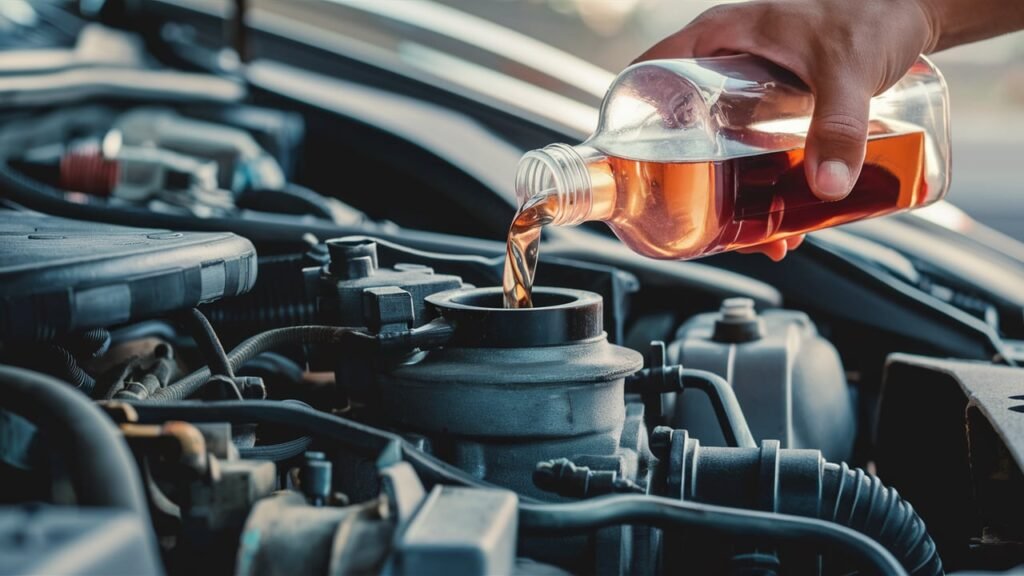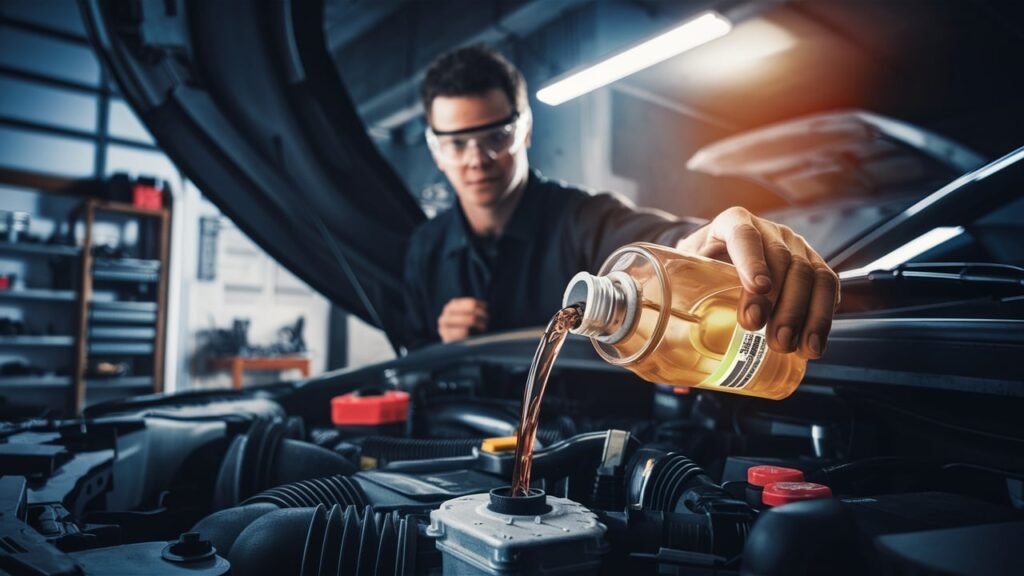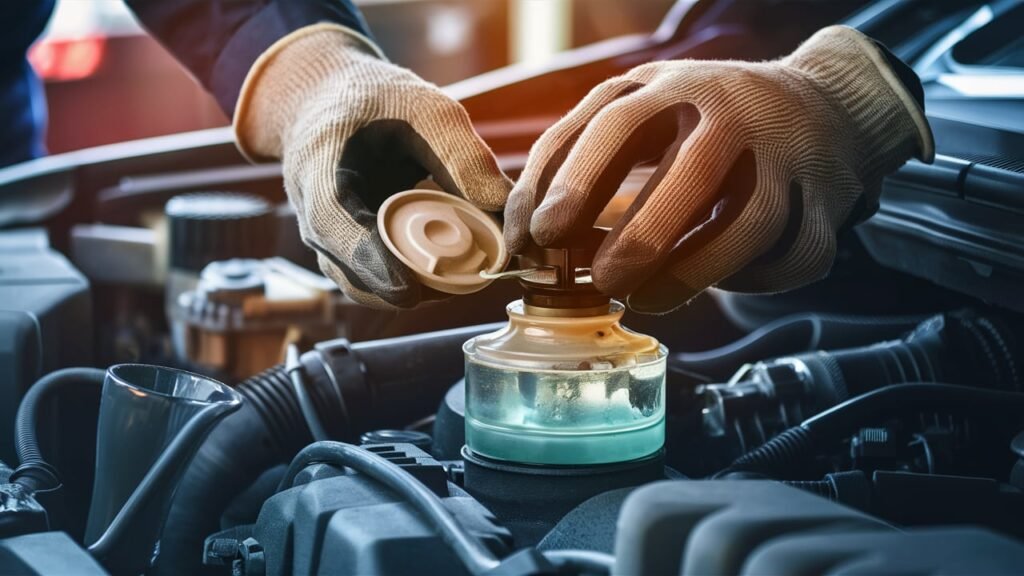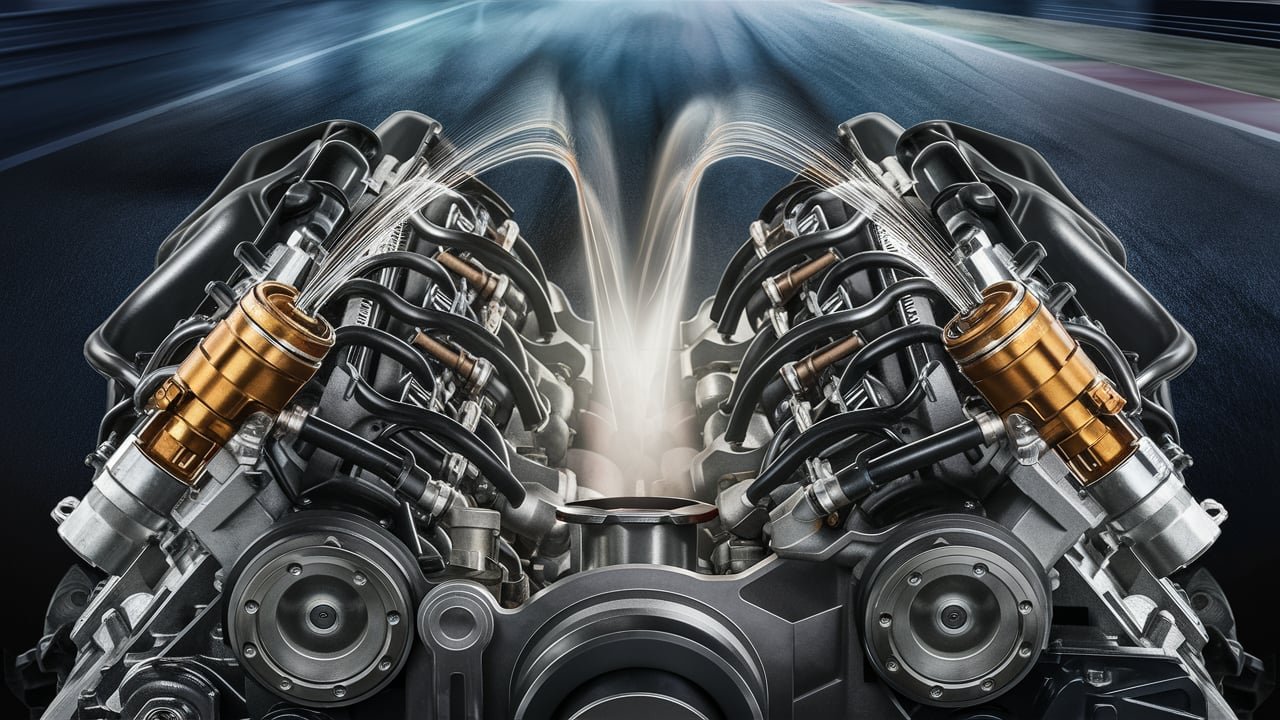
Things You Need to Know About Car Engine Fuel Injectors
A fuel injector is a critical component of a modern automobile engine that is responsible for delivering fuel into the engine’s combustion chamber. The key functions of a fuel injector are:
Atomization: The fuel injector atomizes the fuel, breaking it down into a fine mist or spray, to enable more efficient combustion in the engine.
Precise Fuel Delivery: The fuel injector precisely controls the timing and amount of fuel delivered to each cylinder based on input from the engine’s electronic control unit (ECU). This ensures the optimal air-fuel mixture for efficient combustion.
Improved Efficiency and Performance: Fuel injectors are more efficient than older carburetor systems, leading to better fuel economy, lower emissions, and improved engine performance and responsiveness.
The fuel injector comprises a solenoid, nozzle, and injector body. When the ECU triggers the solenoid, it opens the nozzle to spray the atomized fuel directly into the combustion chamber. This process is carefully timed and metered to provide the engine with the right amount of fuel at the right time for optimal combustion.
Proper maintenance of fuel injectors, including regular cleaning to prevent clogging, is important to maintain engine efficiency and performance. Signs of a malfunctioning fuel injector include decreased fuel economy, engine misfiring, and the check engine light illuminating.
In the intricate symphony of components that power our vehicles, the car engine fuel injector plays a pivotal role.
Defined as a precision device responsible for delivering fuel into the combustion chamber of an internal combustion engine, these small yet vital mechanisms are akin to maestros orchestrating the harmonious blend of air and fuel that propels our cars forward.
Without their meticulous operation, the symphony of a vehicle’s performance may fall flat, ushering in a cacophony of issues within the engine.

Understanding the profound importance of fuel injectors is akin to unlocking a hidden chapter in the narrative of automotive functionality. Efficient utilization of fuel injectors guarantees optimal engine performance, ensuring smooth acceleration, enhanced fuel efficiency, and reduced emissions – all contributing factors that determine the overall health and longevity of your beloved vehicle.
Delving deeper into the realm of these unsung heroes reveals a world where precision meets power, where minor malfunctions can lead to major consequences on roadworthy prowess. Let us embark on a journey together to unravel eight essentials surrounding car engine fuel injectors – illuminating insights designed to empower car enthusiasts, DIY mechanics, and those seeking mastery over their vehicular domain.
Understanding Car Engine Fuel Injectors.
Car engine fuel injectors play a crucial role in the performance and efficiency of a vehicle by precisely delivering fuel into the engine’s combustion chamber. These small nozzles are responsible for spraying pressurized fuel directly into the intake manifold, where it mixes with air before entering the cylinders for combustion.
By controlling the amount and timing of fuel delivery, fuel injectors ensure optimal fuel-air mixture ratios, leading to efficient combustion and power generation within the engine.
In vehicles, there are primarily two types of fuel injectors used: port fuel injectors and direct fuel injectors. Port fuel injectors spray the fuel just before the intake valve, allowing it to mix with incoming air. On the other hand, direct fuel injectors deliver fuel directly into the cylinder, enhancing precision and control over the combustion process. Each type has its advantages based on factors like efficiency, emissions control, and power output.
Recognizing signs of faulty fuel injectors is vital for maintaining vehicle performance. Common indicators include engine misfires, rough idling, decreased fuel efficiency, or noticeable odors from unburned gas exiting the exhaust pipe.
If you observe any of these symptoms, prompt inspection and potential replacement of the faulty injector may be necessary to prevent further damage to your vehicle’s engine system. Regular maintenance checks can help detect issues early on and avoid more extensive repairs down the road.
Importance of Maintaining Fuel Injectors.
Effective maintenance of fuel injectors is crucial for sustaining optimal vehicle performance and fuel efficiency. Regular upkeep ensures that the injectors deliver fuel accurately and efficiently, allowing the engine to operate at its best. By keeping fuel injectors in top condition, drivers can experience improved power output, smoother acceleration, and better overall responsiveness from their vehicles.
When it comes to maintaining fuel injectors, drivers have both DIY and professional options available. For enthusiasts looking to take matters into their own hands, cleaning the injectors periodically can be done using specialized injector cleaning kits available in the market.
These kits typically include cleaning solutions that help remove deposits and build-up within the injectors, restoring them to proper functioning. Additionally, running high-quality fuel additives through the system during refueling can aid in keeping the injectors clean over time.

For those preferring professional servicing, automotive technicians offer comprehensive solutions for fuel injector maintenance. Through methods like ultrasonic cleaning or pressurized solvent flushing, mechanics can thoroughly clean and inspect injectors for any issues.
Professional servicing not only ensures a deep cleanse but also allows for assessment of injector health by professionals who are equipped with the knowledge and tools to address any underlying problems effectively. This option is particularly beneficial for drivers seeking a more thorough approach or if DIY methods prove insufficient in resolving injector issues.
Factors Impacting Fuel Injector Performance.
When considering the performance of fuel injectors in your car engine, several factors come into play that can significantly affect how well they operate. One critical factor is the quality of fuel being used. Poor quality fuel, contaminated with debris or impurities, can clog the delicate passages within the injector nozzles.
This obstruction disrupts the precise spraying of fuel into the combustion chamber, leading to inefficient combustion and decreased engine power. Ensuring a steady supply of clean and high-quality fuel is essential for maintaining optimal fuel injector performance.
Another crucial aspect influencing fuel injector efficiency is cleanliness. Over time, deposits such as carbon buildup can accumulate on the injector nozzles due to impurities in the fuel or incomplete combustion.
These deposits can restrict the flow of fuel or alter the spray pattern, affecting engine performance. Regular cleaning and maintenance are necessary to prevent such buildups and ensure that fuel injectors operate smoothly. DIY enthusiasts can use specialized cleaning kits available in the market to remove deposits and maintain injector functionality at home.
Furthermore, temperature plays a significant role in determining how well fuel injectors perform within an engine system. Extreme temperatures, whether hot or cold, can impact the consistency and vaporization of fuel sprayed by the injectors.
In colder climates, for example, cold starts may pose challenges for injectors to atomize gasoline effectively due to its higher viscosity at lower temperatures. On the other hand, excessive heat can cause vapor lock issues where fuel vaporizes before reaching the combustion chamber properly.
Understanding how temperature variations affect fuel injector performance can help drivers optimize their driving habits based on prevailing weather conditions.
Signs Your Car Needs Fuel Injector Replacement.
Recognizing the signs that indicate your car needs a fuel injector replacement is crucial in maintaining optimal engine performance. One common symptom of faulty fuel injectors is rough idling, where your vehicle may vibrate or shake while at a standstill.
This can be accompanied by misfires, a situation where the engine stutters while driving or struggles to accelerate smoothly. Additionally, if you notice a drop in fuel efficiency despite regular maintenance and proper driving habits, it could signal issues with the fuel injectors.
Knowing when to seek professional help for fuel injector replacements is essential for timely repairs. Professional mechanics recommend consulting them if you experience any of the aforementioned symptoms persistently or face difficulty starting your car due to fuel delivery problems.

Ignoring these signs can lead to more severe engine damage and increased repair costs in the long run. Therefore, swift action when observing these indicators is key to preserving your vehicle’s overall health.
When considering replacing fuel injectors, it’s important to factor in the associated costs. The price of new fuel injectors can vary depending on your vehicle make and model, as well as whether you opt for original equipment manufacturer (OEM) parts or aftermarket alternatives.
While OEM injectors may offer precise compatibility and quality assurance, they tend to be pricier. On the other hand, aftermarket injectors provide cost-effective options but require careful selection to ensure compatibility with your vehicle’s specifications.
Evaluating these cost considerations alongside the urgency of replacement based on symptoms can guide you towards making an informed decision regarding your car’s fuel injector replacements.
Pros and Cons of Aftermarket Fuel Injectors.
When considering aftermarket fuel injectors as replacements for your car’s engine, there are distinct advantages and drawbacks to weigh against original equipment manufacturer (OEM) options. One major advantage is that aftermarket injectors often provide improved performance at a lower cost compared to OEM injectors.
Aftermarket brands have the flexibility to design injectors with optimized flow rates and patterns tailored for specific upgrades or tuning modifications done on the vehicle. This customization can result in enhanced engine efficiency and power output.
On the downside, using aftermarket fuel injectors may present potential drawbacks such as compatibility issues or inconsistent quality control. Since aftermarket parts come from various manufacturers, ensuring that they seamlessly integrate with your car’s existing system might require additional research or modification work.
Moreover, the quality assurance processes of aftermarket brands may vary, leading to variations in product reliability and durability.
To navigate this landscape effectively and choose the right aftermarket fuel injector for your vehicle, consider a few key tips. Firstly, ensure compatibility by checking for fitment guides provided by reputable brands or consulting with automotive experts.
Secondly, prioritize quality by opting for well-known aftermarket suppliers with positive customer reviews indicating reliability and longevity. Lastly, compare performance specifications like flow rates and atomization patterns to select an injector that aligns with your vehicle’s horsepower goals without compromising fuel efficiency.
By understanding the benefits, risks, and selection criteria associated with aftermarket fuel injectors, you can make an informed decision regarding this essential component of your car’s engine system.
Remember that while OEM parts offer guaranteed compatibility but potentially higher costs, aftermarket options provide customization opportunities but require thorough assessment before installation. Balancing these factors will help you optimize your vehicle’s performance within your budget constraints while catering to specific driving preferences or modifications.
How Often Should Fuel Injectors Be Cleaned or Replaced?
Fuel injectors typically require cleaning or replacement based on the vehicle’s mileage, usage, and maintenance history. Here are some general guidelines:
- Cleaning: Fuel injectors should be cleaned every 30,000 to 50,000 miles, depending on the vehicle and driving conditions. Cleaning can help remove debris and contaminants that may affect fuel injector performance.
- Replacement: Fuel injectors usually need to be replaced every 100,000 to 150,000 miles, depending on the vehicle and maintenance history. Signs of worn-out fuel injectors include decreased fuel economy, engine misfires, and the check engine light illuminating.
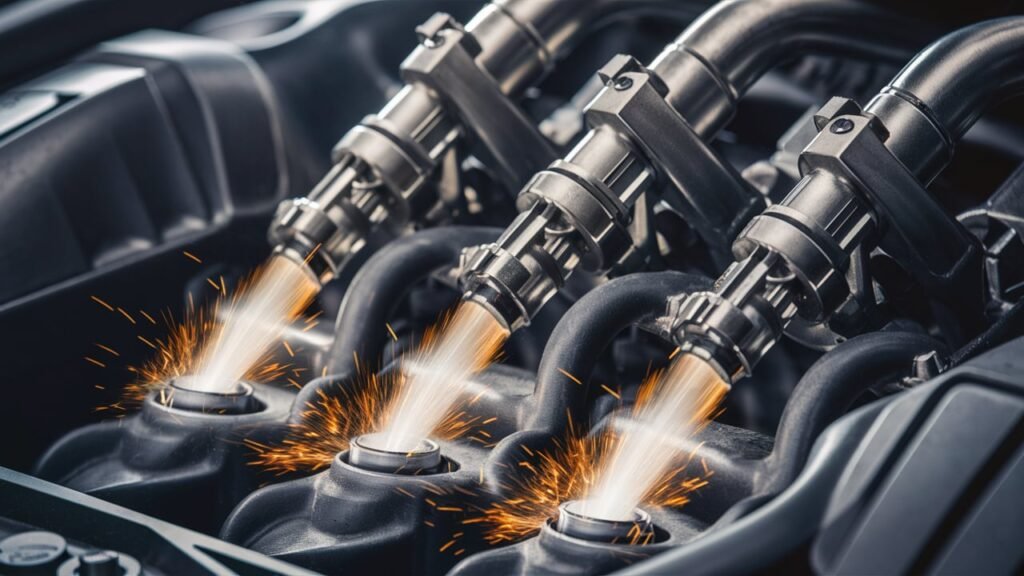
What Are the Signs of a Failing Fuel Injector?
A failing fuel injector can cause a range of issues, including:
- Decreased Fuel Economy: A malfunctioning fuel injector can lead to decreased fuel efficiency, resulting in lower gas mileage and higher fuel costs.
- Engine Misfires: Fuel injectors that are clogged or worn out can cause engine misfires, which can lead to decreased performance and potentially cause damage to other engine components.
- Check Engine Light: A failing fuel injector can trigger the check engine light to illuminate, indicating a problem with the engine’s fuel system.
- Poor Engine Performance: A malfunctioning fuel injector can cause the engine to run rough, hesitate, or stall, leading to decreased performance and potentially causing damage to other engine components.
How Does a Fuel Injector Differ from a Carburetor?
Fuel injectors and carburetors are two different technologies used to deliver fuel to an internal combustion engine. Here are the key differences:
- Fuel Delivery Method: Fuel injectors deliver fuel directly into the engine’s combustion chamber through a fine spray, whereas carburetors mix air and fuel in a venturi and deliver the mixture to the engine.
- Electronic Control: Fuel injectors are controlled electronically by the engine’s computer (ECU), whereas carburetors are mechanically controlled by the throttle and other components.
- Flexibility and Adjustability: Fuel injectors can be adjusted and fine-tuned electronically to optimize engine performance and efficiency, whereas carburetors are more difficult to adjust and optimize.
- Emissions and Efficiency: Fuel injectors are generally more efficient and produce fewer emissions than carburetors, as they can be precisely controlled to deliver the optimal air-fuel mixture.
Conclusion: Ensuring Optimal Performance from Your Car’s Fuel Injectors.
In conclusion, understanding the vital role fuel injectors play in your vehicle’s performance is crucial for every car owner. By maintaining and caring for your fuel injectors properly, you can ensure that your engine runs smoothly and efficiently. Regular maintenance, such as cleaning and inspection, can prevent costly issues down the road and keep your car operating at its best.
Remember, being proactive about detecting signs of fuel injector problems can save you time and money in the long run. Whether it’s DIY maintenance or seeking professional help when needed, staying attentive to your fuel injectors’ health is a smart way to extend the lifespan of your vehicle and enjoy optimal performance on the road.
With this knowledge at hand, you are well-equipped to take charge of maintaining your car’s fuel injectors and keeping your vehicle running in top condition for miles to come.

